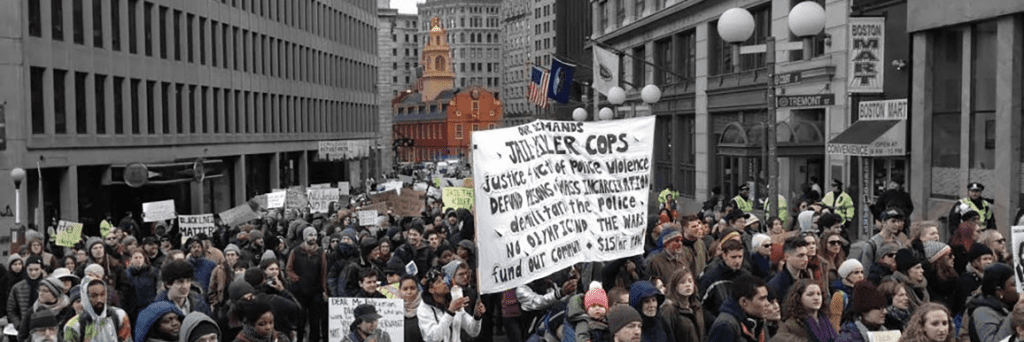Impact of Protest

This issue, our staff took on a question deeply related to our new exhibit and upcoming programs: “How has our idea of protest changed through history? How have these changes impacted history in America?” Read their responses here:
The ways people collectively think about protest has changed over time, and this has in turn fundamentally changed the impact of protests as a whole. During the American Revolution, when protests were dismissed as the acts of ‘saucy boys’ by the British government, their impact was somewhat limited based on who would actually respond to them. With thanks to the First Amendment, protests—particularly peaceful protests—became a more accepted and normalized part of our society, and in turn their impact was felt more clearly throughout society. We can see this through the wider mainstream acceptance of LGBT people following widespread protest and community activism that may have come before actual legislative changes. The pressure from activist protests has also influenced corporate entities who may alter their marketing or product offerings based on community response. Though by no means a rule, organized protests may now have a larger impact as people may be more receptive to the message protesters have. Their ideas can change culture and result in change both on the government level and on a social or interpersonal level.
How much impact protests have on history and how accepted they are largely depends on who is doing the protesting. The response to protest—either in terms of societal or legal changes or the contemporary response from government bodies—seems to depend significantly on the demands of the protestors and their background. We need only look at the recent responses to Black Lives Matter protests around the country to see how protest is still met with violence. While theoretically the act of protest is now protected by the Constitution, it’s clear that the amount of force it is met with by the government may vary wildly, not just because of the protest itself but because of who is doing it.
Click here to read more Revolutionary Conversations.

